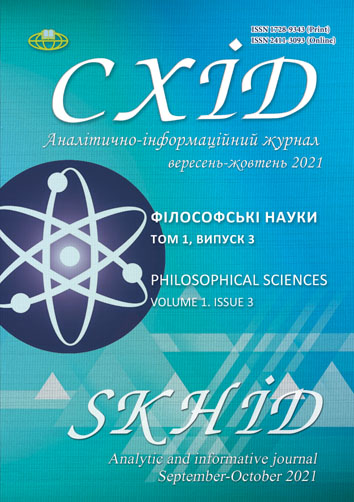SOCIAL MEDIA, PUBLIC SPHERE AND THE POLITICAL TRAGEDIES OF CONTEMPORARY ETHIOPIA
DOI:
https://doi.org/10.21847/1728-9343.2021.1(3).243268Keywords:
social media, federalism, democracy, communicative rationality, public sphereAbstract
Ethiopia since 1991 G.C has been adopting democracy and federalism as constitutional frameworks of the state. The core objective to maintain the two political cultures is the presence of multiple cultural identities within the state and the actual need for an intersubjective discussion on the public sphere. And one of the major areas of public sphere is the social media. As per the Constitution of the Federal Democratic Republic of Ethiopia citizens of Ethiopia have the democratic rights of Thoughts, Opinion and Expression (Art. 29), so in social media it is natural to expect that individuals talk on the different affairs of the state ‘freely’.
Basically the social media is serving as an instrument in maintaining discursive talk among individuals. However, it has been also producing considerable social turmoil across the world. The same is what is encountering in Ethiopia today; on the one hand, social media as a communication platform allows people to communicate effectively with sharing alternative views, attitudes and forming democratic consensus on the social anomalies and responses, and on the other hand, the media is the sphere of communicative maladjustment where misunderstanding, extremism and miscommunication is producing. In the present Ethiopian context the basic source of communication and miscommunication in the social media is the ‘pluriversal identities’ of the cultural horizon. Taking this as a crucial object, this article will discuss the connection between democracy, federalism and social media in the current Ethiopia. On the top of this, the study aims at exploring the following issues: the social media sphere in Ethiopia, the modern and postmodern challenges of social media in Ethiopia and alternatives for the social media reconstruction.
Downloads
References
Al Jazeera. (2018, August 12). Social media shaping calls for Ethiopia political change_ The Listening Post [mp4].
Best, Steven. (1995). The Politics of Historical Vision: Marx, Foucault, Habermas. New York and London: the Guilford Press.
Brenne, Sarah. (2016). Political Discussion on Social Media and the Public Sphere. Sociology and Anthropology, 4(4): 270-275. http://www.hrpub.org
Çela, Erlis. (2015). Social Media as a New Form of Public Sphere. European Journal of Social Sciences Education and Research, 4(1):195-200.
Dean, Jodi. (2003). Why the Net is not a Public Sphere. Constellations 10(1): 95-112.
Engelstad, Fredrik, Larsen, Håkon, Rogstad, Jon and Steen-Johnsen, Kari. (2017). Introduction: The Public Sphere in Change. Institutional Perspectives on Neo-corporatist Society. In Engelstad, Fredrik, Larsen, Håkon, Rogstad, Jon and Steen-Johnsen, Kari (Eds.). Institutional Change in the Public Sphere: Views on the Nordic Model: 1-21. Warsaw, Poland: De Gruyter Open. http://doi.org/10.1515/9783110546330-002
Ethiopia: Ethnic Federalism and Its Discontents. (2009, September 4). African Report No 153.
Fasil Nahum. (1997). Constitution for a Nation of Nations: The Ethiopian Prospect. New Jersey and Asmara: The Red Sea Press.
FDRE. (1995). The Constitution of Federal Democratic of Ethiopia.
Habermas, Jürgen. (1991). The Structural Transformation of the Public Sphere: An Inquiry into a Category of Bourgeois Society. Burger, Thomas (Trans.). Cambridge and Massachusetts: The MIT Press.
Postmetaphysical Thinking II. (2017). Cronin, Ciaran (Trans.). Cambridge: Polity press.
Hiltmann, Gabrielle. (2007). Introduction: Accounting for the Other: Towards an Ethics of Thinking. In Fielding, Helen, Hiltmann, Gabrielle, Olkowski, Dorothea and Reichold, Anne (Eds.). The Other: Feminist Reflections in Held, Virginia. (2008). How Terrorism is Wrong: Morality and Political Violence. New York: Oxford University Press.
Horkhiemer, Max and Adrno, W. Theodor. (1982). Dialectic of Enlightenment. John, Cumming (Trans.). New York: Continuum Publishing.
Ethics. London: Palgrave Macmillan.
Hoy, C. David and McCarthy, Thomas. (1994). Critical Theory. Cambridge: Blackwell Publishers.
Jeesmitha, P.S. (2019). The Impact of Social Media. International Journal of Scientific Research and Engineering Development-– Volume 2 Issue 1.
Kemi, Adams Oluwadamilola. (2016). Impact of Social Network on Society: A Case Study of Abuja. American Scientific Research Journal for Engineering, Technology and Sciences.
Kleinberg-Levin, David Michael. (2008). Before the Voice of Reason: Echoes of Responsibility in Merleau-Ponty’s Ecology and Levinas’s Ethics. New York: State University of New York Press.
Marcuse, Herbert. (2007). One-Dimensional Man. London and New York: Routledge Classics.
Muhabie Mekonnen Mengistu. (2015). Ethnic Federalism: A Means for Managing or a Triggering Factor for Ethnic Conflicts in Ethiopia. Social Sciences, 4(4): 94-105. http://www.sciencepublishinggroup.com/j/ss
Muluye, T. Ketemaw. (2017). The Status of Political Parties’ in Using Social Media for Campaigns During the 2015 General Election of Ethiopia. African Journal of Political Science and International Relations, 11(10): 248-300. http://www.academicjournals.org/AJPSIR
(2018, April 12). PM Abiy Ahmed Speech about Social Media.
Schemm, Paul. (2016, October 14). In the Ethiopia’s War against Social Media, the Truth Is the Main Casualty. The Washington Post.
Tsatsou, Panayiota. (2009). Reconceptualising ‘Time’ and ‘Space’ in the Era of Electronic Media and Communications. Journal of Media and Communication Vol. 1 (July 2009): 11-32.
Downloads
Published
How to Cite
Issue
Section
License
Copyright (c) 2021 Binyam Mekonnen Adera

This work is licensed under a Creative Commons Attribution-NonCommercial-NoDerivatives 4.0 International License.
1. Authors bear responsibility for the accuracy of facts, quotations, numbers and names used.
2. Manuscripts are not sent back.
3. The publisher does not always agree with the authors' opinion.
4. The authors reserve the right to authorship of the work and pass the first publication right of this work to the journal under the terms of a Creative Commons Attribution-NonCommercial-NoDerivatives 4.0 International License. This license allows others to distribute (copy) the published work for non-commercial purposes, provided there is mandatory attribution to its authors and a link to the first publication in our journal.
5. The authors have the right to conclude separate supplement agreements that relate to non-exclusive work distribution in the form in which it has been published by the journal (for example, to upload the work to the online storage of the journal or publish it as part of a monograph), provided that the reference to the first publication of the work in this journal is included.

